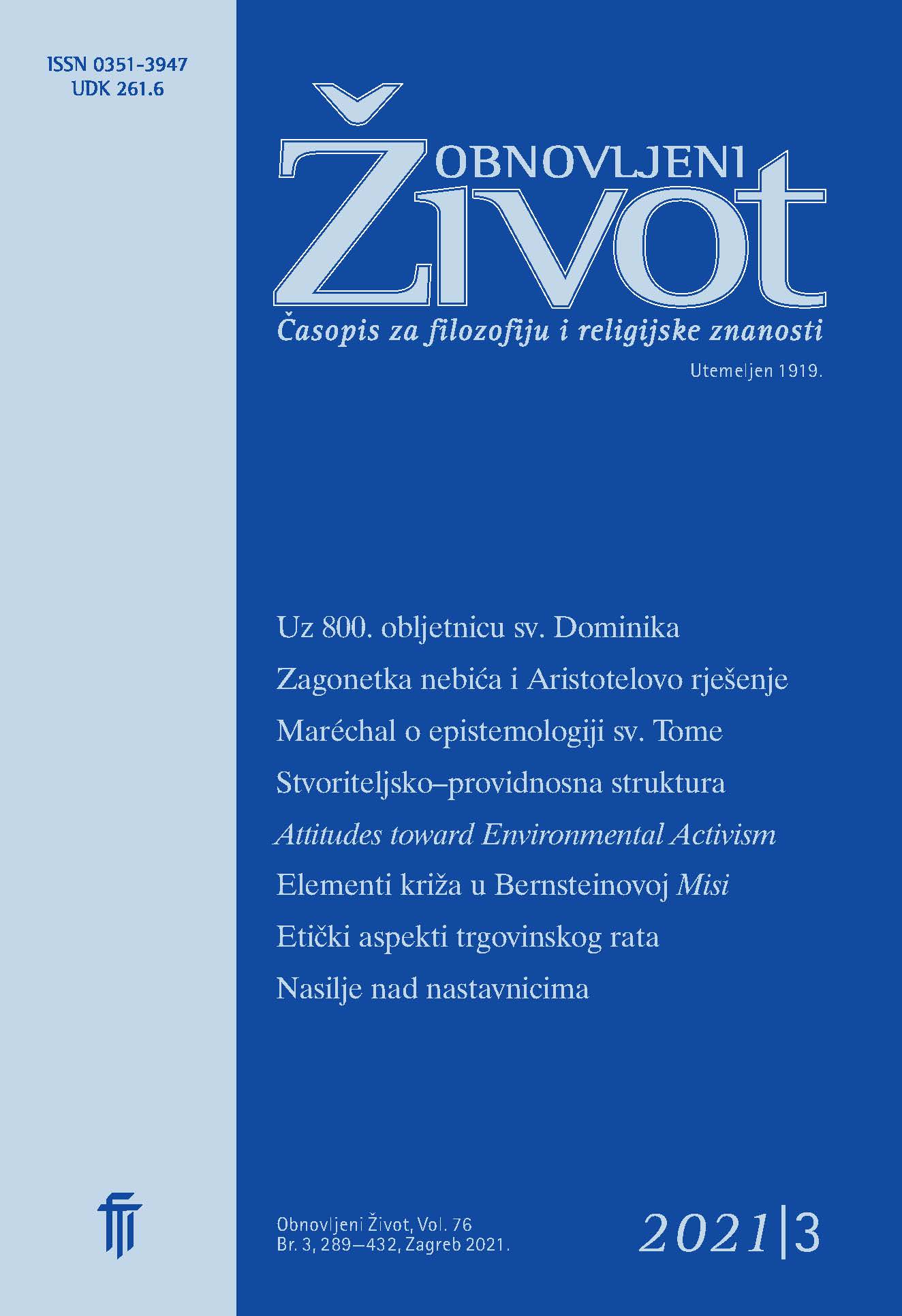Maréchal’s Interpretation of Thomas Aquinas’ Epistemology
Keywords:
Aquinas, Maréchal, epistemology, mental word, intellectus agensAbstract
The paper briefly presents the functioning and far–reaching significance of Maréchal’s epistemology, based on a new interpretation of Thomas Aquinas prompted by Kant’s critique, by which Maréchal is called the father of transcendental Thomism. Like Kant, he wanted to understand the conditions that make human cognition possible at all, but for a solution he turned to the explanation of the psychology of the human cognitive process offered by St. Thomas Aquinas. The fundamental and far–reaching conclusion of Maréchal’s understanding of Aquinas lies in the insight that the human spirit, in every act of cognition, manifests its absolute turn to the Being (esse), which is also the fundamental reason for the possibility of cognition. Such an understanding of the human spirit raises the question of one’s relationship to God, the possibility of partaking in His knowledge and of enjoyment as the ultimate goal. Maréchal touched on these issues in the context of his interest in the psychology of mystical experience, however more significant contributions to these topics were made by B. Lonergan, as is noted in the paper. Maréchal’s quest for Aquinas’ epistemology is incorporated into his personal intellectual growth and self–examination in the spiritual, cultural, philosophical and theological context of his time. His milieu was comprised of the ideas of “Christian philosophy”, modernism, and controversies about the proper understanding of Aquinas’ theology (and philosophy). It is remarkable that, until his theological studies, Maréchal despised everything having an admixture of “metaphysical nebulae”, and he put all his trust on the side of the natural sciences. After an in–depth study of the theology of Thomas Aquinas, he began to change his views.
Downloads
Published
Issue
Section
License
Jednom prihvaćeni članak obvezuje autora da ga ne smije objaviti drugdje bez dozvole uredništva, a i tada samo uz bilješku da je objavljen prvi put u Obnovljenom životu. Uredništvo će obavijestiti autora o prihvaćanju ili neprihvaćanju članka za objavljivanje.
Članci objavljeni u časopisu se, uz prikladno navođenje izvora, smiju besplatno koristiti u obrazovne i druge nekomercijalne svrhe.


